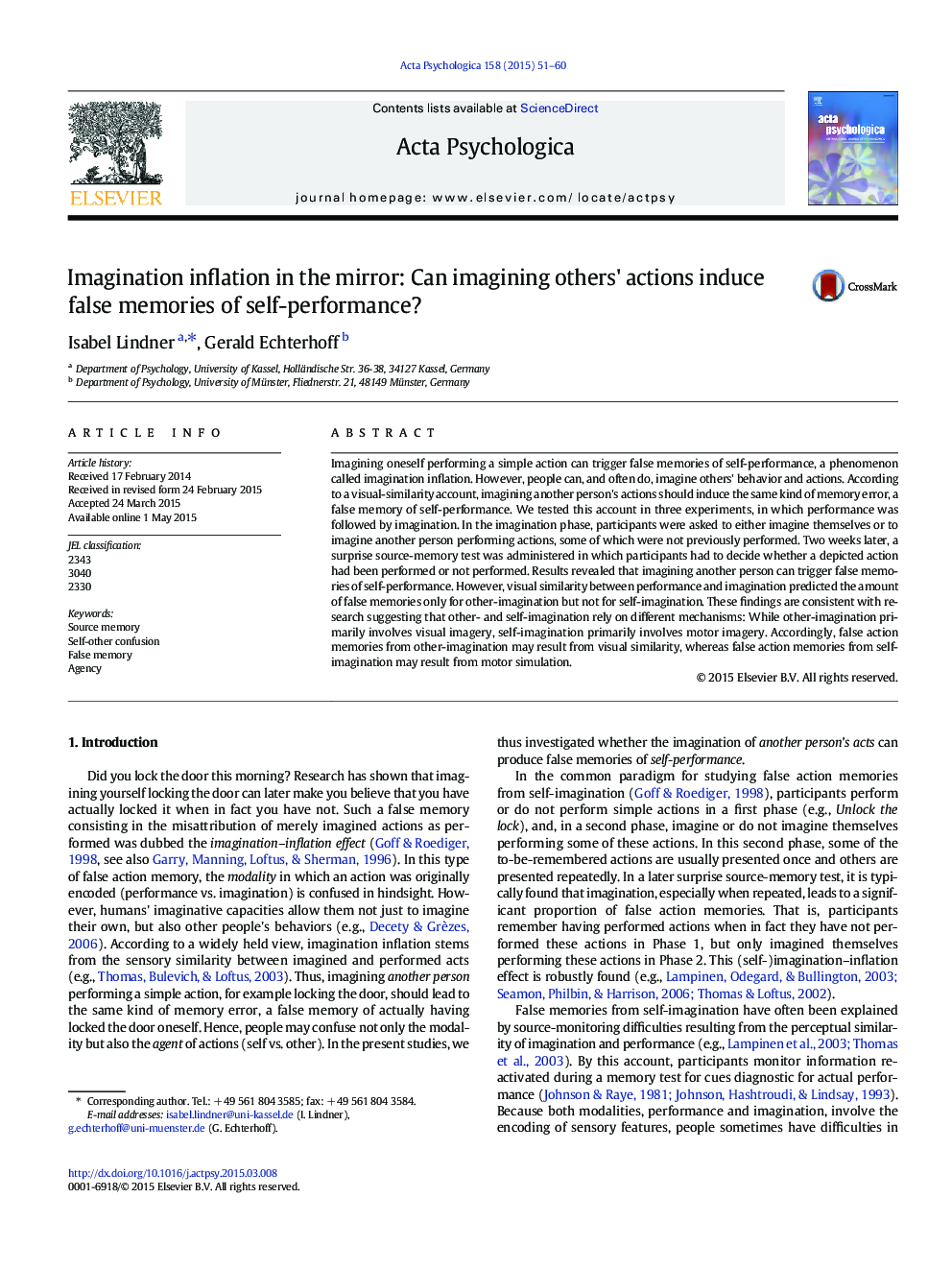| Article ID | Journal | Published Year | Pages | File Type |
|---|---|---|---|---|
| 919703 | Acta Psychologica | 2015 | 10 Pages |
•Imagining oneself performing an action can induce false memories of self-performance.•We demonstrate false memories of self-performance after having imagined someone else.•Visual perspective moderated false action memories from other-, but not self-imagination.•False memories from self- vs. other-imagination seem to rely on different mechanisms.•In real life, such an appropriation of others' acts can have undesirable consequences.
Imagining oneself performing a simple action can trigger false memories of self-performance, a phenomenon called imagination inflation. However, people can, and often do, imagine others' behavior and actions. According to a visual-similarity account, imagining another person's actions should induce the same kind of memory error, a false memory of self-performance. We tested this account in three experiments, in which performance was followed by imagination. In the imagination phase, participants were asked to either imagine themselves or to imagine another person performing actions, some of which were not previously performed. Two weeks later, a surprise source-memory test was administered in which participants had to decide whether a depicted action had been performed or not performed. Results revealed that imagining another person can trigger false memories of self-performance. However, visual similarity between performance and imagination predicted the amount of false memories only for other-imagination but not for self-imagination. These findings are consistent with research suggesting that other- and self-imagination rely on different mechanisms: While other-imagination primarily involves visual imagery, self-imagination primarily involves motor imagery. Accordingly, false action memories from other-imagination may result from visual similarity, whereas false action memories from self-imagination may result from motor simulation.
